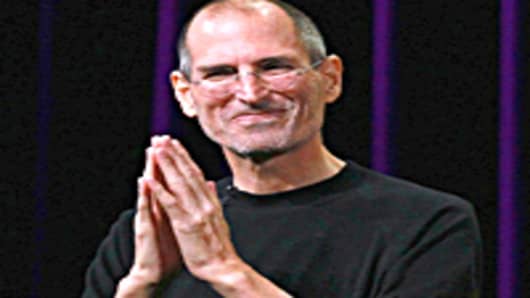Steve Jobs was so much more than a gadget guru — he challenged movie, music, video game gurus, and even the advertising to "think different." Jobs and Apple left a massive legacy across the media business, pushing for an overhaul of content distribution.
Jobs played a central role in the success of the largest media conglomerate — Disney. CEO Bob Iger called Jobs "a great friend and trusted advisor." Jobs joined Disney's board and became its largest shareholder when he sold Pixar to Disney for $7.4 billion in 2006.
(Jobs had quite a return on his investment: he bought the animation studio from George Lucas for $10 million two decades earlier.)
MOVIES
In Pixar, Jobs created an animation powerhouse with an unrivaled track record. All but one of Pixar's dozen films were both critical and commercial hits — the one outlier, "Cars 2" was panned, but still a financial success. Pixar's animated films broke box office records by appealing to both adults and kids, raising the bar for family entertainment. And for Disney , Pixar created a raft of characters which have been a gold mine for the media giant, with the theme parks' attractions built around the films, and some of the biggest brands the consumer products business has ever seen.
MUSIC
Jobs has had an even bigger impact on the music industry, transforming the way consumers listen to music with the Apple iPod and how they buy it with iTunes. ITunes was the first truly viable digital music business model — it made buying digital tracks so easy it helped stem piracy. But it also encouraged the purchasing of individual tracks, which slammed music labels' bottom line. The labels blame Jobs for accelerating their demise — he allowed bands to distribute directly to consumers without needing a label, and he was a notoriously tough negotiator, leaving the labels with slim margins.
TV DISTRIBUTION
Now the iPad and the app store are having a similar transformative effect on the way consumers watch video. But the media giants are careful to avoid going the way of the music industry — they've been eager to make the most of the new platform. The iPad is the ultimate mobile video device, for anytime-anywhere viewing. So companies from Comcast (CNBC's corporate parent) and Netflix to Time Warner's HBO are using the iPad to give subscribers additional access to their subscription content. Time Warner CEO Jeff Bewkes said "The stories our company tells have been made richer by the products he created."
Once again, Jobs' devices are pushing media companies to give consumers more control. And by selling individual TV shows on iTunes, Jobs pushed media towards an a-la-carte model.
VIDEO GAMES
Let's not forget that the iPod and iPad are also gaming devices. The slew of games in the app store has helped create the massive new niche of "casual gaming." Nintendo's hand-held devices took a massive hit, struggling to compete with Apple's sleek gadgets. And the app store is stealing consumers and revenue from traditional game companies like Activision and Electronic Arts .
ADVERTISING
And Jobs was a true advertising visionary, mastering the use of content to sell technology. He treated ads like content — from his 1984 Super Bowl ad directed by Ridley Scott to the dancing silhouette ads just a few years ago, which put the Black Eyed Peas and other artists on the map. Jobs knew that a catchy U2 song would inspire people to understand the potential of buying a flat black screen.
Questions? Comments? MediaMoney@cnbc.com



